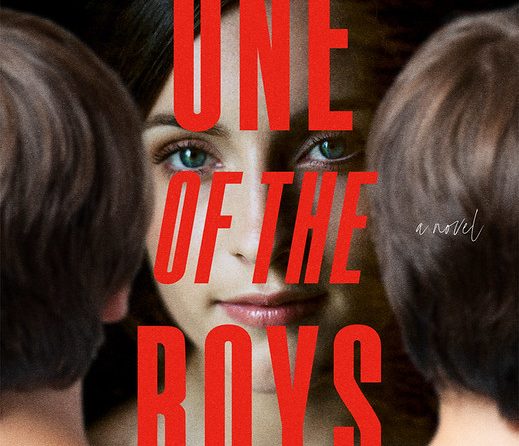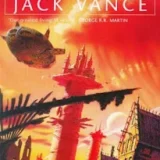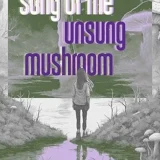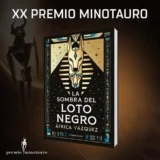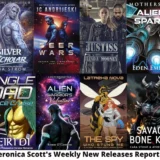
OBIR: Occasional Biased and Ignorant Reviews reflecting this reader’s opinion.
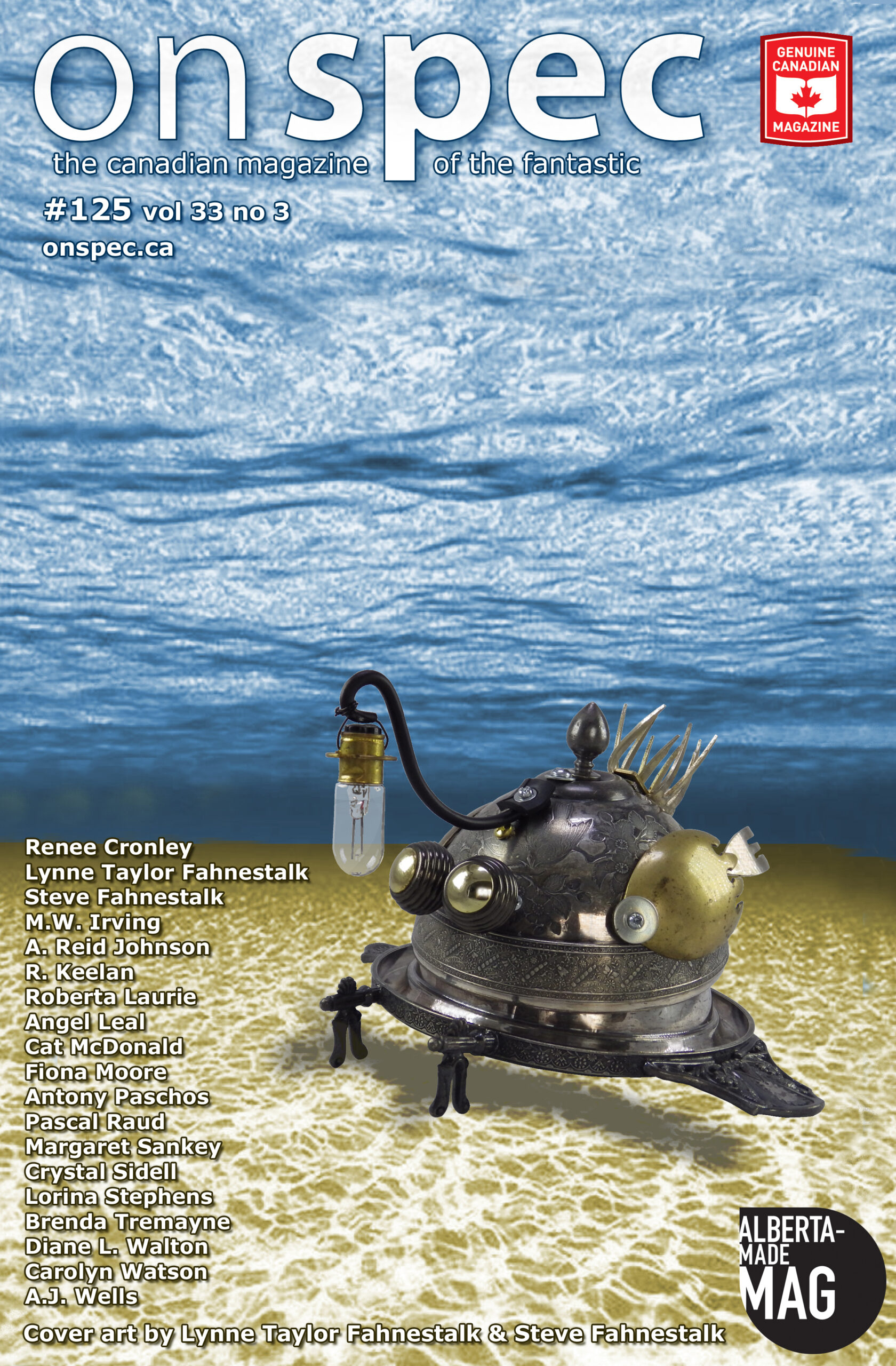
ON SPEC MAGAZINE issue #125, Vol. 33 No. 3.
Publisher: The Copper Pig Writer’s Society. Managing Editor and Art Director: Diane L. Walton.
Issue Designer: Jerry LePage. Poetry Editor: Celine Low.
Fiction Editors: Barb Galler-Smith, Virginia O’Dine, Constantine Kaoukakis, Susan MacGregor, Ann Marston, Krystle McGraith, A.J. Wells, Diane L. Walton, Dan Gyoba, Ethan Zou, Alyssa Kulchisky, Celine Low, Lareina Abbott, Cheryl Merkel, Jade Mah-Vierling.
Cover Art: Angler Fish-Bot – by Lynne Taylor Fahnestalk and Steve Fahnestalk.
FICTION:
A Fairytale for Sophie – by Antony Paschos
Premise:
Can virtual reality defeat death?
Review:
Eleni is slowly wasting away at home, her death inevitable. Her sister tends her as best she can. Likewise Tasos, Eleni’s husband, overcome with guilt and helplessness. A cultural background centred on the Greek Orthodox Church provides support and context to hold the family together. In general, a familiar scenario to anyone who ever lost a loved one.
What makes this story different is Eleni’s young daughter Sofie, who persists in the belief that winning a virtual reality game will save her mother’s life. No wonder, the Queen in the game is “an augmented autonomous AI avatar” of Eleni. Sofie doesn’t feel helpless at all. She is literally fighting hordes of demons to save her mother. A very proactive form of denial.
The story gently explores the emotions and mindsets, the rationalizations and obsessions, of people coping with the lingering death of a loved one. Added to this mix, a near-future gaming technology and the likely implications of its influence.
Extrapolating forward, will virtual reality and normal reality merge into a new form of unified situational awareness and, if so, will that be a benefit or a curse? A disturbing question. Life is serious enough. AI gaming, it is implied, will make it even more serious. Thought-provoking.
Oh Exemplary Restraint, so Rare in the Modern World! – by R. Keelan
Premise:
Can a homeless girl cope with a creepy, old-fashioned man?
Review:
Amelia doesn’t trust men, or anybody, actually. She’s been on her own for a long time. So, meeting an elderly Professor willing to pay her to do a modest amount of research into horror fiction involving old-timey monsters seems like a safe-enough gig, depending on what, if anything, his underlying motivation may be. It turns out he’s not interested in sex. That’s a good thing. What he is interested in makes him far creepier.
This is an old-fashioned, almost Victorian horror tale with a refreshingly original approach. Amelia is very modern. The Professor, not so much. Nevertheless, they can relate, albeit at cross purposes. An interesting way to bridge the generational gap I must say. A solution of sorts, though not perfect by any means. That is why it is a genuine horror story.
The Sisters Three – (poem) by Renee Cronley
Premise:
How sea sprites live.
Review:
A glimpse of how the powers of the sea intrude on land-lovers. Our symbiotic relationship darkly yet beautifully revealed.
The Chameleon – by Pascal Raud
Premise:
What if time travel doesn’t take you when-ever?
Review:
Because it looks fabulous, Alexander buys an antique watch which the dealer claims is also a time machine. How steampunk can you get? Very cool.
Except, when Alex tries it just to see if it works, instead of taking him when and where he wants to go, he winds up in what appears to be a fantasy world involving numerous lore manifestations, some of it familiar to him and much of unknown origin. Since he doesn’t credit his sub-conscious with that much imagination, he assumes the “fantasy” world is a real place, albeit one that doesn’t make any sense. This piques his curiosity bigtime.
I wonder, who or what is the Chameleon of the title? The time traveler? Or reality at large? Does the new world mirror Alex, or he his new habitat? For that matter, what underlies the concept of time travel? Dissatisfaction with one’s own time? The desire to escape somewhere better? Deep down inside, to change from what one is to what one wants to be?
This is a cheerful, jovial tale despite dark undertones of doubt and anxiety. It is a quest for knowledge, for revelation both external and internal. Call it a metaphor for life itself. Reading this reminds one that in exploring life’s potential we often dwell too much on what can go wrong. Amazingly, this is a “feel good” story that actually works. Uplifting and inspiring. I like it.
Letter to a Brother on a Generation Ship – (Poem) by M.W. Irving
Premise:
What you would want your brother to know.
Review:
Let’s just say it’s a good thing he’ll never read your final thoughts. For the reader a hard question, which brother to envy least? Powerful.
The Trombone, the Pianist, the Four-Wheeler, and the Zombies – by Carolyn Watson
Premise:
Being 82 years of age is problematic when fighting zombies.
Review:
The story doesn’t focus on the zombie plague. Kip, the protagonist, concentrates on his own setup. He’s doing all right. The electricity and the water remain on. He can still make instant coffee. Of course, what with most people abandoning the city, his friends taking refuge in a community centre, and the ashes of his deceased wife in an urn on the kitchen table, he’s beginning to feel a bit lonely.
Then the water and electricity go out. That does it! He’s off to battle the zombies with his cane… if he can get down the stairs to ground level.
This story is about resilience in the face of inevitable doom. A stand-in, perhaps, for the difficulties of coping with old age. I’m only ten years younger than Kip. I easily identify with both his problems and his thoughts. Do I see myself whacking zombies with my cane? Well, why not? Worth a try. Alleviates boredom. Get’s one excited. Fulfills childhood fantasy. Offers all sorts of short term advantages. Good while it lasts.
The serious message is that, in life, everyone dies. If you feel you are close to the end, why sit around waiting for it? That just hastens its arrival. Do something. Anything. Keep busy. Write reviews for Amazing. Hunt zombies with a cane. Whatever works.
The story is more complicated than I’ve indicated, with a nifty ending accenting the message. Another, positive, uplifting tale. Fantasy, yes, but useful, practical fantasy. If you can, be like Kip. That be my goal.
soliloquies after division – (poem) by Crystal Sidell
Premise:
Death influences love.
Review:
But doesn’t make it go away. A final parting is always poignant, but not complete. Not yet. Rich and painful description drives home the point. For all the sorrow, fundamentally an optimistic, uplifting poem, just like the process of grieving. Impactful and meaningful.
The Written Future – by A.J. Wells
Premise:
Ink is all. Do not resist the Ink.
Review:
Every now and then a science fiction story comes along that is so original it takes my breath away. This is such a story. Hard science? No. A surreal fantasy presented in a matter-of-fact style as if it were real. Yet true science fiction, in terms of predicting our future as we choose to make it.
It’s about ink, about a flood of sentient black ink which begins to drown the world. There’s no escape, though many cling to the higher ground as long as it lasts. Yet the ink dares to proselytize. Why not cope by becoming one with the ink? The protagonist has done so. She can flow like liquid, but manifests as a swirl of hooded black robe and veil to instruct neophytes how to join the flood. All is routine.
However, a problem begins when a former lover, who does not recognise her, applies for conversion. This is worrisome, because remembering his past behaviour, she has doubts about the sincerity of his desire to convert. The faithful are enjoined to record their memories in ink and, once they are archived, think of them no more. Trouble is, his memories stir her memories, a forbidden thing and possibly a threat to the sanctity of the sanctorum. What to do?
This first struck me as a metaphor for the growing power of the Catholic Church in the dark ages, and then, reflecting further, the influence of religion in general, or even the demands of ideology or custom. In short, a vivid presentation of the eternal struggle between individual desires and the demands imposed by society.
Long ago I remember a Marxist professor denouncing “the Western cult of individualism.” I thought his emphasis on the need to serve the collective bizarre and rare. Over time I have come to understand the need to conform is inherent doctrine in literally every organization humanity has ever created. It is individualism that is rare and under threat, especially in this era of “truespeak” and “If you’re not with us you’re against us.”
I’m not sure whom to root for. Are we better off Inked? Or should we cling to our ruined past? Is it worthwhile being an individual? Seems there are arguments pro and con.
One thing for sure, the mood and imagery are immersive and frightening. Impressively original.
Alien Anthropologist – by A. Reid Johnson
Premise:
First contact requires empathy.
Review:
The human main character is an exobiologist anthropologist who is both patient and attentive. He, alone, Agzor is willing to meet and discuss possibilities. Agzor represents the dominant species on the newly discovered alien planet. Unfortunately, Devlin, the Earth bureaucrat in charge, is impatient and insists on rushing things. This risks offending Agzor’s sense of protocol.
This short story is precise and sharp in demonstrating how the urge to get things done according to schedule is one of mankind’s biggest flaws. Too often it leads to products, processes or even wars launched before development and preparation are complete. Because of this, failure is frequently guaranteed rather than success. It’s a lesson we never seem to learn.
This fictional example is vivid and, to my mind at least, cynically amusing. Old-fashioned science fiction, perhaps, but a classic of its kind. Memorable. A touch of Weinbaum mixed with hard science. I’m very fond of it.
Under the Protection of a Long Living Fungus – (poem) by Angel Leal
Premise:
Can we communicate with fungus?
Review:
Only a sentient fungus is alive in a cave. The frozen world above is devoid of all life. Left unclear is if this is a dead alien world being visited by human explorers, or a sterilized portion of Earth with life still abundant elsewhere in warmer climes. Either way, the humans who have entered the cave are intent on communing with the fungus. How will it react? What does it have to say?
The Keening of a Sparrow – by Lorina Stephens
Premise:
An earthside medical specialist conducts a virtual-aid operation on a wounded sparrow found in a ventilation shaft aboard a mining ship in the asteroid belt.
Review:
A story about loss, the loss of a loved one, and the loss of humanity, morality and ethics as humanity begins to exploit the resources of our Solar System. It’s only a sparrow, true. But consider why it’s there and what it represents. Once you understand what’s really going on, hard science fiction is transformed into horror, a glimpse of a dystopian future. Worse, like all good science fiction, it’s really about what’s going on today.
To paraphrase Dickens, this story drives home the point “Humanity. It was the best of species. It was the worst of species.”
To put it another way, despite the visions of pro-science utopianists, we aren’t done with the need for keening yet. Not by a longshot. Powerfully poignant story. Penetrating. Hard to forget.
Folklore – by Brenda Tremayne
Premise:
The trouble with researching monsters is not every myth is based on fiction.
Review:
The heroine is a young scholar and influencer staying at a small country hotel outside the Portuguese town of Montanha da Bruxa. This translates roughly as “Mountain of the Vampire.” She wants to know how the mountain got its name. The locals refuse to tell her. They are even more horrified when they learn she wants to reveal her research in her nightly blog read by thousands worldwide. Bruxas don’t like attention. This could be a problem. For everybody.
I am reminded of the opening scenes in many movies wherein villagers warn travellers not to go near Dracula’s castle. This story is redolent of that gothic tradition. Focuses on that in fact, much as the recent film “The last Voyage of the Demeter” chillingly concentrates on the single chapter in Bram Stoker’s novel dealing with Dracula’s transportation to England.
Mind you, this vampire is not Dracula, and in nature is rather different. However, the bulk of the story is the researcher working around and past the villager’s refusal to help her, in effect constituting a wonderful extrapolation of the length villagers will go to protect the omnipresent evil that looms over them. Rather akin to a flock of sheep protecting their wolf shepherd because they have no choice but to do its bidding.
In sum, old-fashioned, but with new twists and turns which keep the growing sense of threat fresh and lively. Especially the manner in which the Bruxa has adapted to the modern world. In that sense she is more progressive than her fearful, close-minded flock. I found that rather refreshing in its originality. I relish discovering such subtleties as I read through a tale. It’s how tradition can be made new again. Excellent technique. Well done.
And if Venice is sinking – by Fiona Moore
Premise:
What if virtual tourism damages ancient ruins even more than physical tourism?
Review:
Virtual tourism became huge once the appropriate technology was developed and made available. Then came the discovery of the Kneale Phenomenon, sensitivity to the psychic weight of human emotions absorbed by the physical infrastructure of old buildings. At first it rendered the tourist sites even more enthralling. Rendered virtual visits even more visceral.
But the stones kept absorbing. One day the excessive psychic weight of millions of modern visitors triggered the physical disintegration of the city of Venice. All tourist sights worldwide were promptly closed off to virtual visitors and, just as a precaution, to actual visitors.
Joon Choe, former virtual tour guide, has managed to hang on to a job monitoring and dealing with intrusions in the ancient now thoroughly derelict city of Pompeii. Trouble is, their virtual lover Em has concocted a scheme to negate the consequences of the Kneale phenomenon and restore tourism to its former glory. All Em needs is a five-minute virtual visit to Pompeii to test their theory. Strictly illegal, but can Joon arrange it? And if it works, what are the consequences? And what if things go wrong?
As a life-long lover of ancient history and archaeology, living in a world where religious iconoclasts routinely destroy ancient art, sculptures, and even entire buildings, I get antsy when a site like Pompeii is threatened, even fictionally. That lends a horror aspect to the story, at least for me.
But what stands out is the bold concept of mere technology wreaking psychic havoc on the preservation of hallowed legacies of our worldwide civilization. Maybe I’m not well read, but it strikes me as a startlingly original trope I’ve not come across before. Got to be an original take on what virtual realty may lead to. Certainly, it got my attention.
I sometimes get emotionally involved with characters, though not in every case, as I tend to prefer concept-driven stories. But I am always emotionally involved with any ruins mentioned. There’s something so poignantly time-binding about the concept of ancient ruins that I become submerged in feelings I’ve never fully understood. Odd, but that’s just me.
So, this story moves me in ways I’ve yet to figure out. At the very least I consider it a brilliant example of extrapolating forward from current trends.
NON-FICTION:
“Retro-Futurist Robots” Interview with Lynne Taylor Fahnestalk and Steve Fahnestalk – by Cat Mcdonald
Lynne crafts her robots from assorted found objects, and Steve photographs the results. Both tasks are very complicated and demanding. A heck of a lot of creativity, experimentation, and hard work goes into producing the finished result. Provides much insight into the dedication required to establish and maintain a fulfilling, highly artful hobby.
Comic & Bot: “The Bartender” & “Retro Rhonda” – By Lynne Taylor Fahnestalk
As usual, both comic and bot are charming, endearing, and fun.
“It’s the Zombie Apocalypse” – Author Interview with Carolyn Watson by Roberta Laurie
“I’ve done a lot of different jobs, none of which I particularly liked. My passion is my writing, so I do what I can to make time for it.”
I thoroughly relate to Carolyn’s comment. My life encapsulated, and probably the lives of most writers as well. In keeping with that, she offers a lot of practical advice on how to be a writer without letting the consequences of that masochistic hobby get you down, in effect providing antidotal ammunition against imposter syndrome. Especially useful for beginning writers.
CONCLUSION:
Another issue exhibiting both wide variety and incredible originality. Always a must read.
Check it out at: < On Spec #125 >



